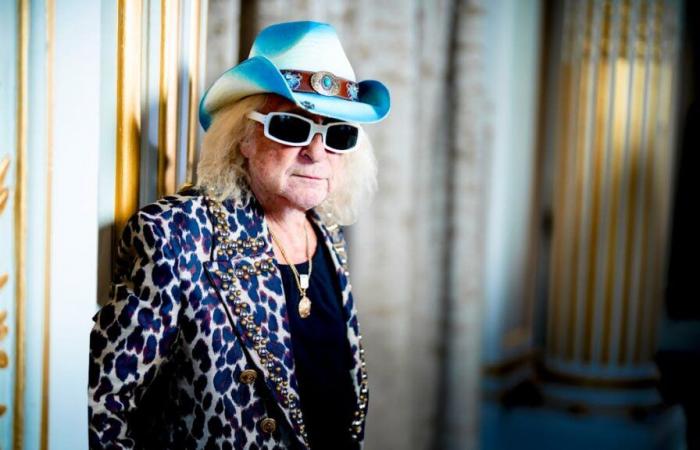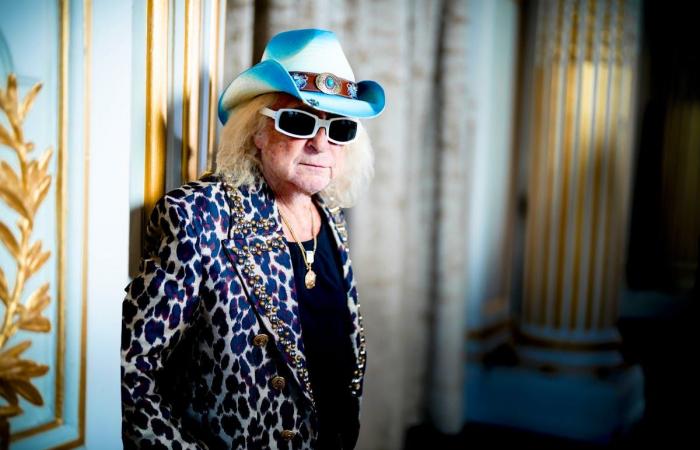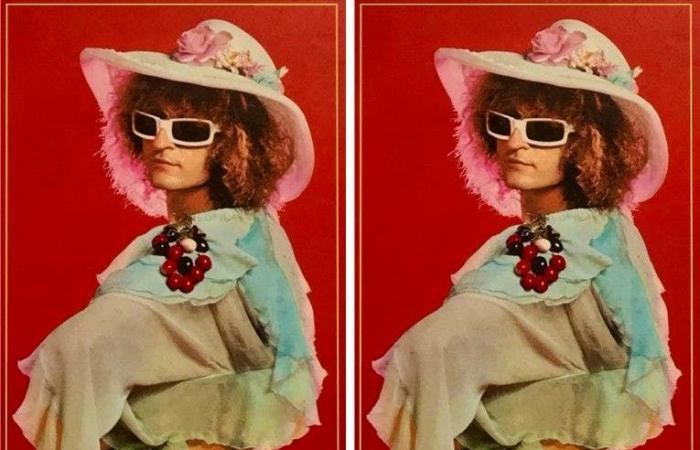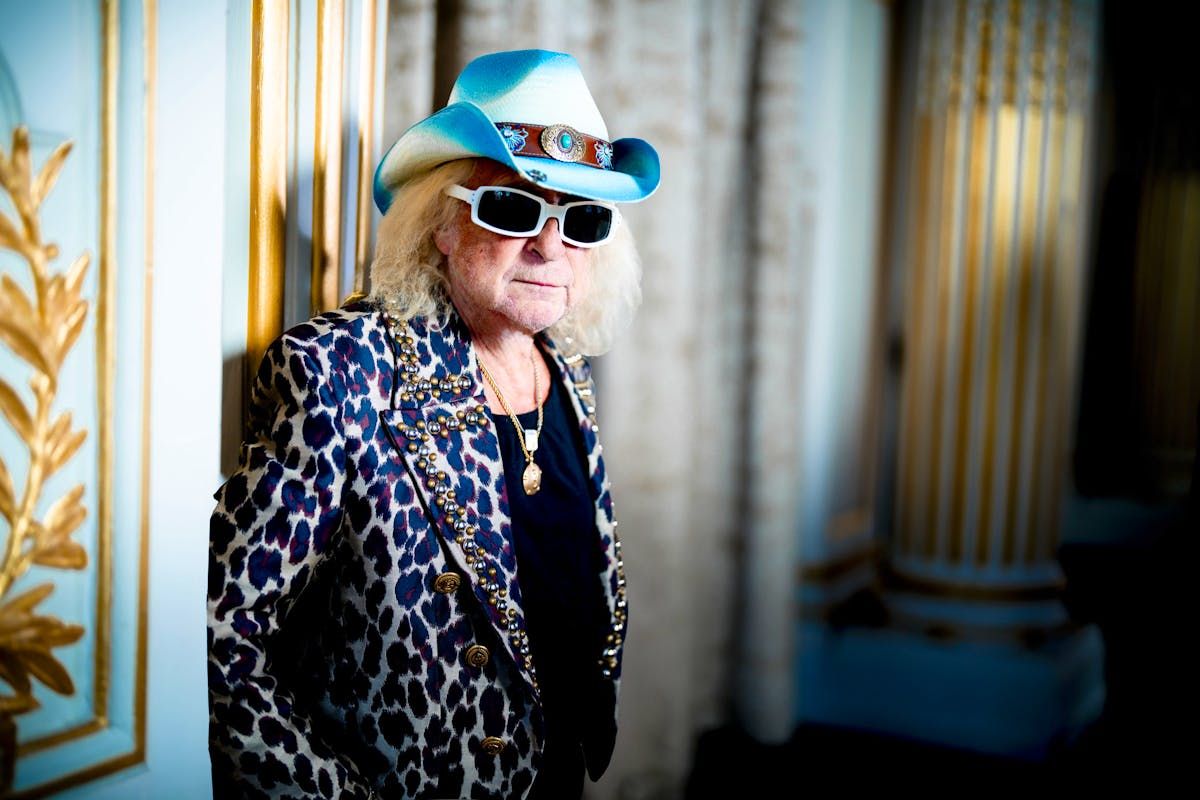
Michel Polnareff and his white sunglasses, an iconic style.DR / Henry Rouget
Versailles, his large canal, his opera, his castle and Michel Polnareff. It was in the City of Kings of France, in a five-star hotel, that we have an appointment with the interpreter of “Goodbye Marylou” and “Love Me, Please Love” on Wednesday. Not because he takes himself for a monarch. But because he doesn’t like big cities, he explains. Besides, when we tell him that we came from Switzerland to meet him, he enthuses: “I love Vevey, Lausanne and of course Montreux. But not Geneva. “
At the beginning of the afternoon, rather than a crown, Polnareff, 80, wears, in addition to its traditional white sunglasses, a white-braided cowboy hat with Navajo patterns, a suede vest over a yellow and blue shirt with cacti. Put ajar, the shirt. To reveal two pendants. He is asked if it is the style he carries in the California desert, in Palm Springs, where he has lived for forty years. “I can tell you that there, I am the only one who wears that. No, it’s just that I want to wear that. But it’s more Hawaii, right? ” he has fun.
The admiral is in good shape. In interview and on disk. Released last Friday, “a time for them” with his eight titles, including four instrumental, is a real success that we no longer expected. This is obviously this record that we talked about, but also about his career, his image and his arrival at the Sion Festival under the stars, on July 15. “I have done so many interviews since the release of the thing, I will try to tell you things that I haven’t said before,” he promises.
Michel Polnareff, you took a long time for the return album, “Finally!”, Which finally released in 2018. For “A time for them”, we have the impression that it was more natural, more direct.
This is the case. There is one that gave me a lot of difficulties, which was not supported by the record company, with a failed engraving. It was really a terrible disappointment. For “a time for them”, I started by looking for co-authors to write lyrics. But I did not find anyone going in my opinion. So, I said to myself: “Ok, Michel, you have to go!” And I did all the thing on my own. The eight years that I spent on “Finally!” was hard on the length. There it was hard on the concise. I surprised myself. I was afraid of not having the chat when I had to have it. And I defeated that.
These new songs instantly sound like classics. What was the click to get there?
I am very proud to have had the inspiration at the right time. When I did it, I wanted to focus on non-commissioning, which is everywhere. This is what the song says “You don’t hear”. We are in a difficult world, we cannot ignore it.
The difficult world inspired you, love too …
Both. There are a lot of personal things, that’s why there is the song “A time for her”, while the title of the album is in the plural.
On the eight pieces, half are instrumental. Because it was difficult for you to write more words?
I had done a little the same on “bubbles”. I know there are people who are surprised that there are only eight titles. But what are they good! We don’t work at volume. If you find it too short, you listen to it. Me, what I did was a jet.
“I don’t want to congratulate my father for being so brutal. As I will not admire the guy who defrauded me and who made me go to America ”
What does the piano represent for you, in your life?
It was an enemy during my childhood. Now it’s a companion. I love playing the piano because I play things that are not an obligation.
You say “enemy” because your father forced you to play it as a child, is that right?
Something like that. But, with hindsight, no question of thank him. I don’t want to congratulate my father for being so brutal. As I will not admire the guy who swindled me and who made me go to America.
Your song “Sexcete” addresses sex, identity. Recently, the British Supreme Court decided that the term “woman” in law refers to a person born biologically woman. In a context where this subject comes up regularly at the heart of the public debate, what message did you want to convey?
I did not know this decision. It seems right to me. I think that a man is a man, a woman is a woman and I think we mix everything with the sexual preferences of each other. Who are completely acceptable to me. We do what we want with her ass! “Sexcetera” is a humorous way to invoke less importance for sexual preferences.
On the cover, we obviously see your white sunglasses. Iconic. When of your career you told yourself that you wanted to make it a trademark?
I never thought it was a brand. Besides, this is not one, it is a Lunettier who made it his mark. But I didn’t think it was going to be so revolutionary. It was and it still is. There are fans, mossillons (Editor’s note: the nickname of his fans)in concerts that wear these glasses or glasses that look like real. There, I put them for you, so that you know it’s really me. It’s my passport. Since when? I suck with the dates. For me, dates is something that grows on my palm springs. (Laughs.)
On your website, we now find Polnavatar, an avatar by Michel Polnareff who answers our questions. Who had this idea?
It’s a mixture. Polenaweb.com (the name of its website, launched in 1996 already) had become a disaster. You had to put a little new stroke. But you have to improve the Polnavatar. I find it a little pompous and a little too polite. It’s Madame de Sévigné. But I leave it that, there must be a difference between the two of us. AI is quite surprising. But I think that in twenty years we will laugh, because it will progress in an incredible way. The “Sexcetera” clip was carried out using the AI. On the other hand, there is no question of using it on music or on words.
Will Polnavatar be part of the staging of your tour?
I don’t know yet. We start rehearsals this Sunday …
“I love Montreux, Vevey and Lausanne”
You will play in Sion on July 15. The Swiss public, how do you find it?
It may be more covered in winter. (Laughs.) In Switzerland, as I told you, I love Montreux, Vevey and Lausanne. Montreux, for Queen. Vevey, for my friend restorer Denis Martin. Unfortunately, it is retired, I miss it, I loved it. And then obviously, in Crissier, there was Frédy Girardet, who is for me the greatest chef.
How do you prepare mentally and physically for your tour?
Physically, I dropped. My coach fractured her foot, or something like that. I told myself that if I resumed now, I was going to end up with sick aches during the tour. So it’s still mental.
Your tour is called “My behind tour”. A nod to the 1972 poster where you showed your buttocks or a real farewell announcement to the scene?
Farewell, it is not even a question. This is not the last tour, it’s the next one. I have no desire to stop. And why would I do it? If you don’t want me anymore, you have to be told. I stay at home. It’s just an allusion to the ass affair.
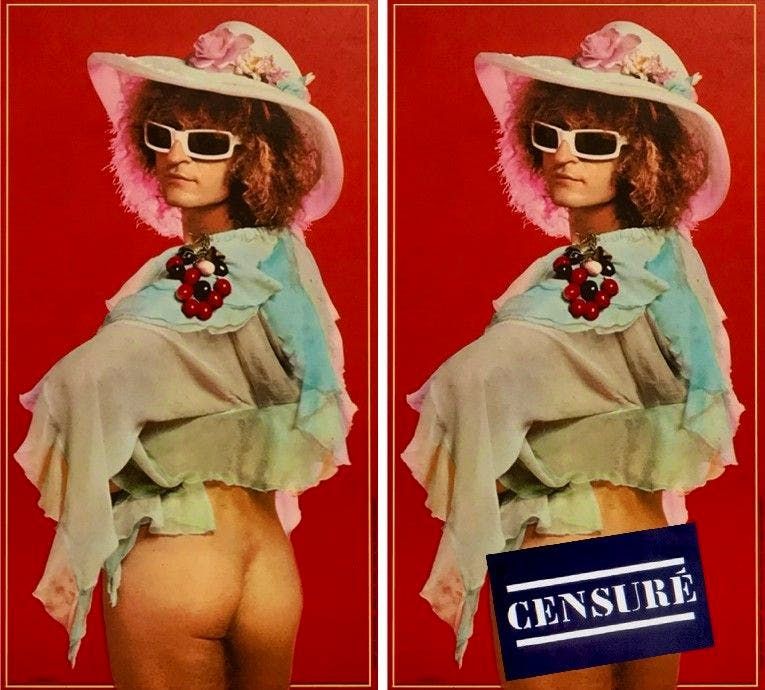
Placarded in Paris on October 2, 1972, the poster to announce the concerts of Michel Polnareff caused a scandal. The artist is sentenced to 60,000 French francs fine for modesty attack. A rectangle will then be added to its buttocks.DR
In 1972, when you made this photo, was it a manifesto of freedom or only a gag?
A bit of both. It was between the schoolboy joke and the desire to make the buzz since I wanted us to know that I was going to Olympia. And that worked well. Besides, I never regretted it.
There are people who might expect to see your behind on stage, at Olympia?
It must be completely clear: production had decided that the people who came to the concerts to only see my ass would be fully reimbursed. (Laughs.)
You have known the heights, the crossings of the desert, the triumphant returns. With hindsight, how would you describe your journey today?
Cats have seven lives. I have more. I am quite proud of the course.

